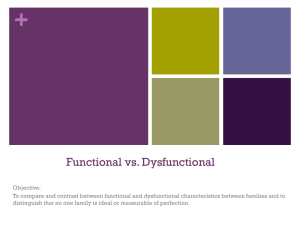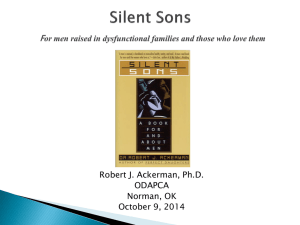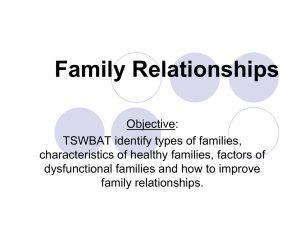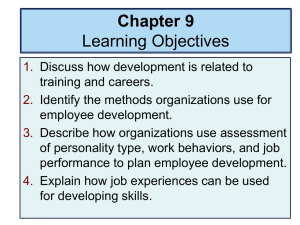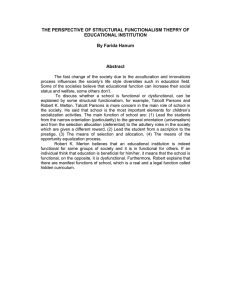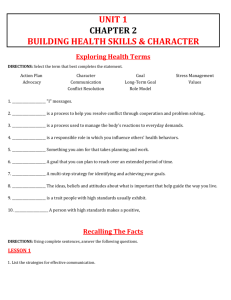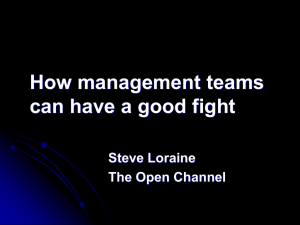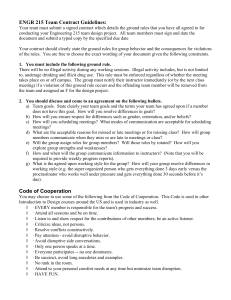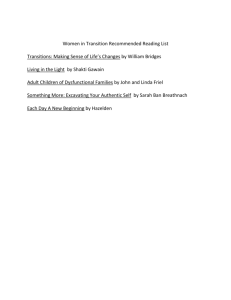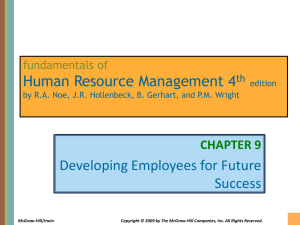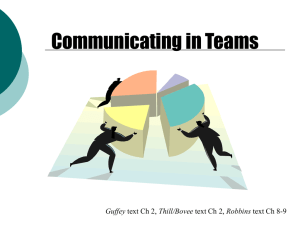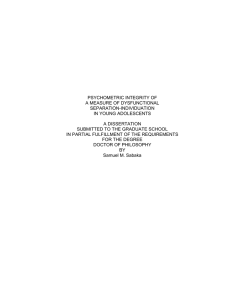Managing Conflict
advertisement
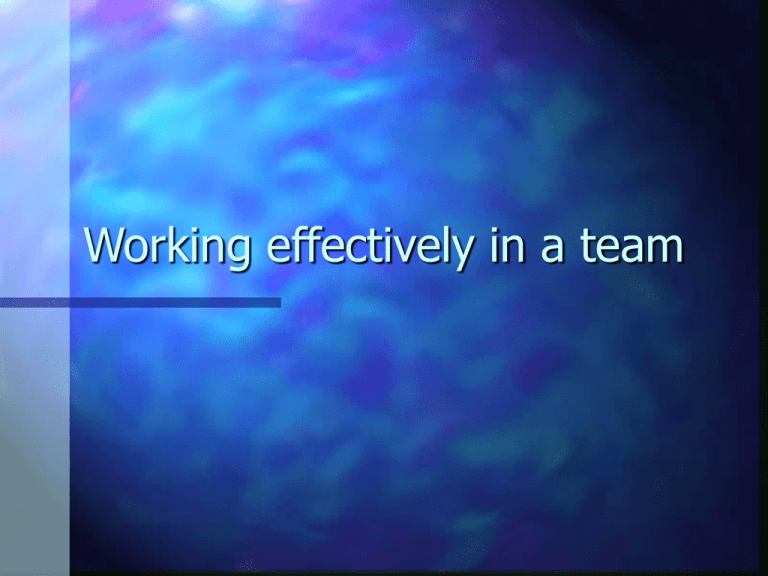
Working effectively in a team NONE OF US IS AS SMART AS ALL OF US Objectives of this presentation Conflict is normal (& good!) just needs to be managed Identify your conflict handling style Steps for problem solving approach Strategies for better communication Ingredients for a successful team 1. 2. 3. 4. 5. 6. Clarity in team goals - and a plan Clearly defined roles and rules Balanced participation Awareness of the group process Conflict management Clear communication Goals, Roles and Rules Has your team defined its goals? Who is going to do what? How will you find a balance and monitor that? What are your ground rules? 4-Step Group Formation Model Forming Storming Norming Performing Conflict - definition To come into collision, to be in opposition or at variance; disagree a controversy, a quarrel, discord of feelings or actions as in a conflict of ideas Conflict is normal Some conflict is inevitable - it is normal human behaviour Conflict can be functional or dysfunctional Dysfunctional conflict: – threatens group survival – diverts energy – destroys morale and trust Functional conflict – improves decision making – stimulates creativity – releases tension – increases energy We need to manage conflict, not eliminate it. What sorts of conflicts can happen when people come together to work as a team? High Importance R E L A T I O N S H I P S Low Importance GOALS High Importance Conflict Handling Styles Shark Fox Turtle Teddybear Owl -competing -compromising -avoiding -accomodating -collaborating CUDSA model 1. Confront the conflict 2. Understand the other’s position 3. Define the problem(s) 4. Search for and evaluate Alternative solutions 5. Agree upon, implement and evaluate the Best solution Some communication strategies Choose an appropriate time and place Maintain eye contact Define the problem using “I” statements Don’t use labels/insults Give positive as well as negative feedback Ask questions to clarify “I” versus “you”statements You’ve done a terrible job on this I feel worried that this is not up to the required standard and we’re going to get a bad mark “I” versus “you”statements You are late to every meeting – its impossible to work with you “I’m finding it really frustrating when you are late and we have to repeat everything we have already said. Can we talk about this?” Common IE conflicts! Late to or missing meetings Not finishing allocated task or not to expected standard Aggressive/domineering manner Uncooperative attitude IE conflict resolution processes Try the methods outlined here within group Talk to supervisor, who can act as facilitator to resolve problem Notify coordinators, who can attempt conciliation and/or take formal action to resolve problem.
